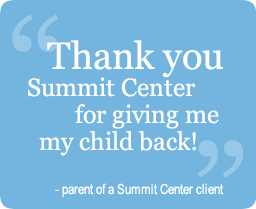By Dr. Dan Peters, Ph.D.
New York Times columnist Frank Bruni once wrote a book called Where You Go Is Not Who You’ll Be about our American epidemic of college anxiety. In it, he discusses the chronic worry that has ascended the shoulders of our kids while trying to get into a topnotch school and the way school elitism has usurped the actual meaning and experience of collegiate life for many young people today.
College anxiety did not exist when I was in school—or at least I don’t remember it. I knew it was a family value that education was important. My grandparents were immigrants and my parents the first in their families to go to college. I remember becoming aware of my GPA in middle school when there was “honor roll” for those with 3.3 and higher. I remember shooting for that goal so I could get my name on the gold paper. I also remember not being in any honors classes, though most of my friends were, and not worrying about or even considering the impact of that on my future college choices. I remember looking at some colleges, wanting to go to some more than others, then choosing one. The college process was just part of growing up and not more stressful or pronounced than other developmental phases.
Now? I have clients in 2nd grade telling me they are going to Stanford or UC Berkeley. I listen to high school students who have GPAs of 4.2-4.6 tell me how stressed, anxious, and depressed they are and weary of their future. I talk to parents daily about their worries that their child is not going to get into a “good” school.
Since when did getting into a good school equate to getting into only the UC, IVY League, or trendy brand names schools? Who started this fear? It seems to be the effect of a slow and insidiously building phenomenon that pushes the ability to do better than perfect (4.0 used to be the best), the false value of increased college tuition (my first UC quarter was $419), and the societal (largely upper middle class) belief that one can always do better and if you don’t you will get left behind. These three factors should not be forefront in the reasoning for our youth to attend the schools of their choice.
Instead, it is important for our kids to focus on the process of living instead of the suggestion that outcome is all. That means focusing on learning and doing well in school, engaging in extra-curricular activities like sports, the performing arts, Boy and Girl Scouts, robotics, and giving back to the community through volunteer experiences, to name a few. Our kids should not be worrying about which college they are going to go to. When the time comes, they can start looking into what areas of the country they may want to live, the type of college—liberal arts or science based—they may want to attend, and which field of study they may choose (if they even know).
Modern college gives our children a general education alongside the opportunity to grow up and experience independence and explore other perspectives. College gives youth the opportunity to form their own opinions, possibly different from their parents, and meet friends who may be friends for life. College—regardless of where they go—gives our kids experience, education, and opportunity. It sets the stage for what comes next. It may be the best experience of your child’s life, it may be “okay,” or it may not be a good fit. Your child’s college experience will not define them; it will be part of their on-going development.
Unfortunately, parents can be huge contributors to college anxiety. The main tip for moms and dads wanting to support their children in a healthy, productive way is to try not to worry and chill out (as kids say)! Model a non-alarmist thinking style. If you are worried about your child, they will worry about themselves. Don’t make this the biggest decision of their life that will determine their life’s path. Many people go to several colleges, change their mind, and change their path. Others like where they will go. College is just another step and milestone on life’s path.
My oldest daughter is currently a freshman. She and her friends check their grades daily on School Loop. They are constantly focused on their GPA. I am not sure they even know why except everyone talks about it. “What did you get on the test?” and “What is your GPA?” are commonly heard. Her mother and I spend a lot of time helping her to put her grades in perspective and not overly focus on them. We remind her there are lots of options and places for her and we will start looking into them in a few years. We keep her focused—or try to—on the present, not three years down the road.
There are over 5000 colleges and universities in the United States and that means there is a place, or several, for your child. Try to enjoy your child’s present instead of worrying about their future. They are growing up fast and will be gone soon. Embrace the mantra “It will all work out….,” because it did for us, and it will for them, regardless of the logo emblazoned across their school sweatshirt.
Originally published on Psychology Today in 2015


